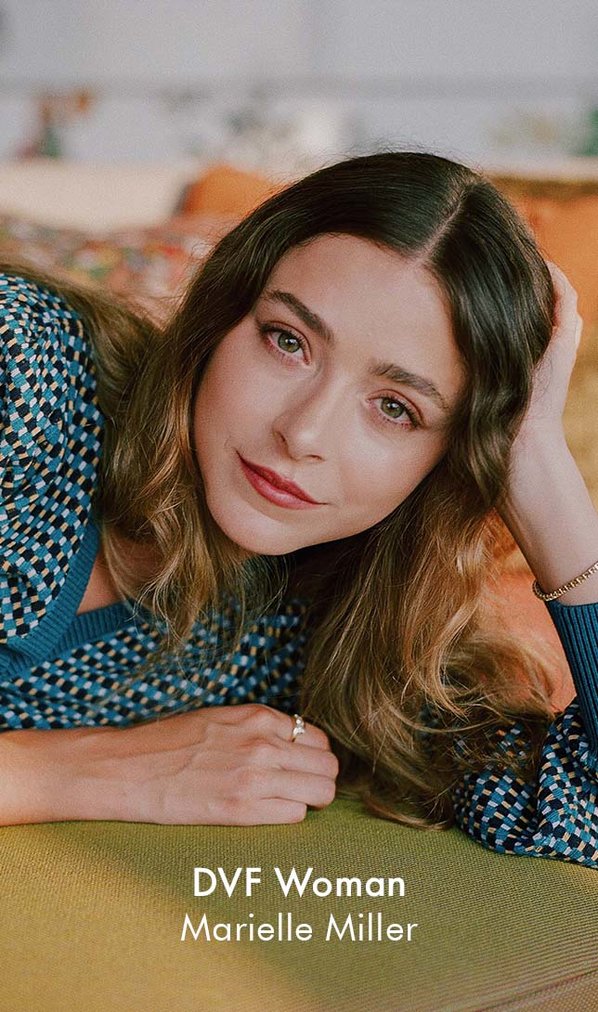Marielle Miller


Spinning Strife Into Gold
Marielle Miller, Consultant at BCG and Head of Strategic Planning at the streaming start-up Sensical, has managed to work through the challenges of her youth by way of asking questions, conducting research, and spinning her observations to create a positive impact for others.
A turning point in Marielle’s life happened when she was 11 and her mother began to exhibit signs of mental illness and, on a bus ride back from the beach, these symptoms came to a boiling point. Marielle and her older sister were with their mom when she stood up and asked the bus driver to stop so she could use the restroom. He obliged, she got off and came back. She proceeded to do this a few more times until the bus driver grew frustrated and told her he couldn’t stop the bus so many times as they were on a schedule. She then stormed off, leaving Marielle and her sister alone as the bus driver continued his route. This was the beginning of what would be a long-term struggle with Bipolar Disorder.
Spinning Strife Into Gold
Marielle Miller, Consultant at BCG and Head of Strategic Planning at the streaming start-up Sensical, has managed to work through the challenges of her youth by way of asking questions, conducting research, and spinning her observations to create a positive impact for others.
Spinning Strife Into Gold
Marielle Miller, Consultant at BCG and Head of Strategic Planning at the streaming start-up Sensical, has managed to work through the challenges of her youth by way of asking questions, conducting research, and spinning her observations to create a positive impact for others.
A turning point in Marielle’s life happened when she was 11 and her mother began to exhibit signs of mental illness and, on a bus ride back from the beach, these symptoms came to a boiling point. Marielle and her older sister were with their mom when she stood up and asked the bus driver to stop so she could use the restroom. He obliged, she got off and came back. She proceeded to do this a few more times until the bus driver grew frustrated and told her he couldn’t stop the bus so many times as they were on a schedule. She then stormed off, leaving Marielle and her sister alone as the bus driver continued his route. This was the beginning of what would be a long-term struggle with Bipolar Disorder.
These episodes continued for some time, often resulting in extended stays at the hospital. That same year, her father made the decision to move their unit to Ecuador, where they had family and a support system, so Marielle and her sister could experience a stable adolescence while their mom focused on her health in Costa Rica.
“Academics became my outlet. I’ve always been really close to my mom, so to see her become this different person felt like a complete surprise. But I was lucky because Google existed and I was able to learn everything about Bipolar Disorder and became obsessed with psychology as a result. At the time, knowledge was the window into my mom’s mind. It was the reason I was able to forgive her. If I would’ve never understood that these behaviors were out of her control, I don’t think I would’ve been able to move past it.”
Consequently, she decided to go into a field that would help others and, all throughout high school, aspired to attend an Ivy League college. Encouraged by her father, she took a road trip the summer before her senior year to tour the Ivys and decided to apply early decision to University of Pennsylvania, got in, and moved from Ecuador to Philadelphia at 18. In the beginning, Marielle struggled to meet people and keep up with classes, but eventually found a rhythm that worked for her. “After that, I became a huge nerd,” she laughed.
Marielle then dedicated her time to “obsessive studying”, as she put it. After deciding pediatric medicine was not her passion, she started to develop an affinity for organizational psychology. One day, she received an email from Wharton Latino about consulting recruiters on campus (one of whom was Boston Consulting Group) and, while she didn’t entirely understand what consulting meant at first, she concluded it would be a good place to start for someone who wasn’t set on a specific career. After her time there, she realized consulting was an obvious way to learn how to found a company with the ethos of helping others.
“I learned everything I could about BCG, I went through a really difficult interview process, and they offered me a paid summer internship in their New York office, which meant a lot to me because I wouldn’t have to depend on my dad for money—and, in Latin America, women aren’t encouraged to be financially independent. I really wanted that.
“It was a crazy experience, I was the youngest person in that office. It was Imposter Syndrome at its finest—you have to remember, I was a 19-year-old from Ecuador with all these things that had happened in my childhood, and out of nowhere I’m in a New York office and people are giving me real assignments. I was just like ‘What makes you think I can do this?’ But, honestly, the best thing I could’ve done was be transparent with my manager. Since I was willing to do my best and wanted to learn, he was willing to sit down and teach me. In the end, they invited me back the following summer.”
Marielle wanted to understand how corporations can make their employees not just satisfied, but happy. "BCG is a great place to work," she shares, "but that’s not the case everywhere." She got into Positive Psychology and was both a research assistant to Dr. Adam Grant and a Teacher Assistant to Dr. Scott Barry Kaufman. Marielle wanted to figure out how companies (and individuals) can improve their environment without having to play an active role. In order to answer this question, she pursued Dr. Sigal Barsade, a Wharton professor, to advise her undergraduate senior thesis—something Dr. Barsade usually reserved for PhD students at Wharton. After being denied many times, Dr. Barsade recognized Marielle’s drive and gave in. Together, they set out to answer Marielle’s question.
“We tested a group of 400 people to see if small, passive changes in their surroundings would affect their overall happiness. For example, posters with inspirational quotes. We found that it’s more impactful if the employee chooses it themselves.”
This style of easy positivity, that requires no continual effort from the individual, is of “great fascination” to Marielle. Recently, she explored this idea at Sensical, a kids’ free streaming service inspired by Common Sense Media, where videos are screened by experts and filtered through a rigorous, proprietary rubric based on the most comprehensive child developmental research available. Grounded in science, Sensical takes on a child's natural interests and builds upon them to provide content that strengthens their skills, entertains them, and, most importantly, is very safe. Since the video selection doesn't consider the child's gender, it furthers the possibility of a tomorrow where there is more gender representation in homogenous fields like STEM and education. In the future, Marielle wants to build a positivity-based curation system or algorithm for people of all ages so they can receive positive and productive content that contributes to their overall happiness.
“You know, I’m kind of a kiss-ass,” Marielle smiles, “But it genuinely comes from the heart and a place of wanting to help others.”
Marielle's Instagram is @marielle___elise.
The photographer for this shoot was Olivia McDowell, keep up with her work at @oliviamcdowell.
